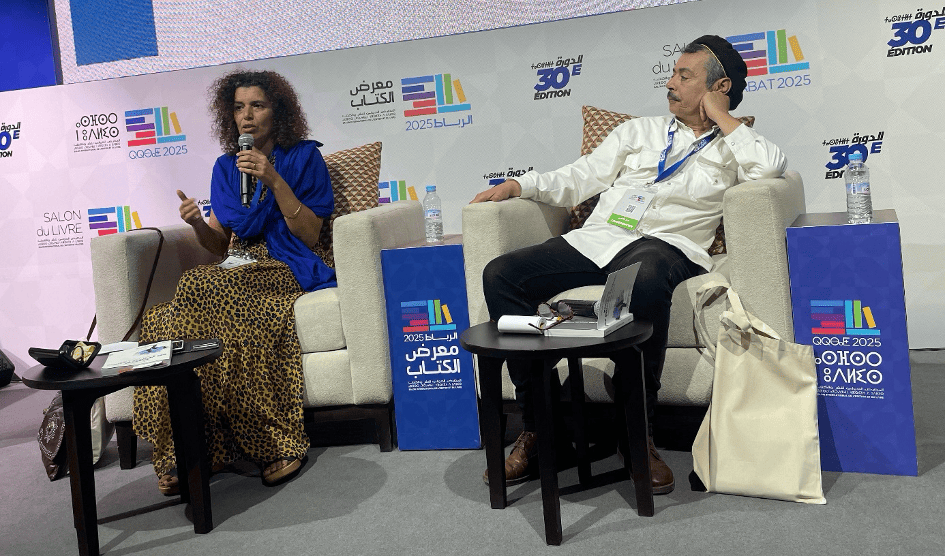
At the Salon International de l’Édition et du Livre (SIEL) on Saturday, April 26, Franco-Moroccan journalist and anthropologist Sabah Rahmani presented her latest book, “Paroles des peuples racines: plaidoyer pour la Terre”, in a session moderated by Mustapha Qadery, historian and researcher at Université Mohammed V in Rabat.

At the Salon International de l’Édition et du Livre (SIEL) on Saturday, April 26, Franco-Moroccan journalist and anthropologist Sabah Rahmani presented her latest book, “Paroles des peuples racines: plaidoyer pour la Terre”, in a session moderated by Mustapha Qadery, historian and researcher at Université Mohammed V in Rabat.

At the Salon International de l’Édition et du Livre (SIEL) on Saturday, April 26, Franco-Moroccan journalist and anthropologist Sabah Rahmani presented her latest book, “Paroles des peuples racines: plaidoyer pour la Terre”, in a session moderated by Mustapha Qadery, historian and researcher at Université Mohammed V in Rabat.
Rahmani, who has worked for over twenty years on the question of indigenous peoples, explained her deep attachment to the term "peuples racines" ("root peoples"), a phrase she discovered through Jean Malaurie. She finds it more poetic, symbolic, and fitting than the usual "indigenous," emphasizing the strong link between roots (Racines), trees, and identity.
Her book brings together 19 texts about 19 peoples from across the globe, from Taiwan to the Sámi people of Finland, reflecting a life-long inquiry into the relationship between humans and nature. Since childhood, Rahmani had been fascinated by rituals, pilgrimages, and humanity’s spiritual ties to the natural world. Through her work, she seeks to transport and translate these worldviews, fostering a dialogue between traditions and modernity.
Mustapha Qadery beautifully evokes the Amazigh language, where a water source is called an "eye," and describes how a tree remains a marker in time and space. Discussing Morocco, Rahmani described the country as "tradimodern", a land balancing tradition and modernization. Yet, concerns were raised at the session about the increasing replacement of traditional architecture with concrete, as seen in the post-earthquake rebuilding of the Haouz region, a move seen by many as regrettable.
For Rahmani, the impoverishment of the soil through monoculture parallels the dangers of cultural and spiritual monoculture between humans. Diversity, both ecological and human, is vital. She summed up her research approach with three words: authenticity, simplicity, and humility, a powerful reminder of the urgent need to reconnect with the Earth's living roots.
